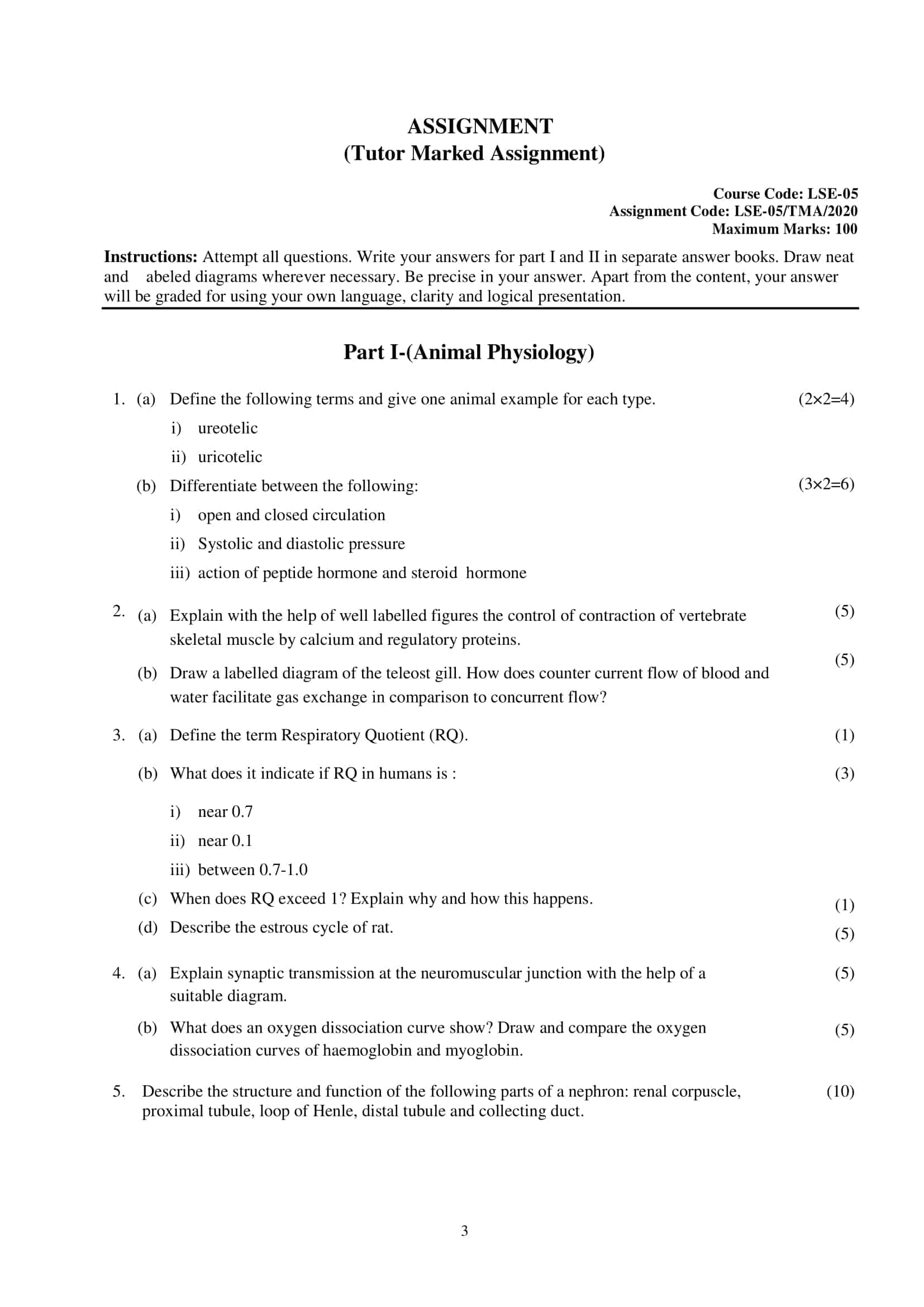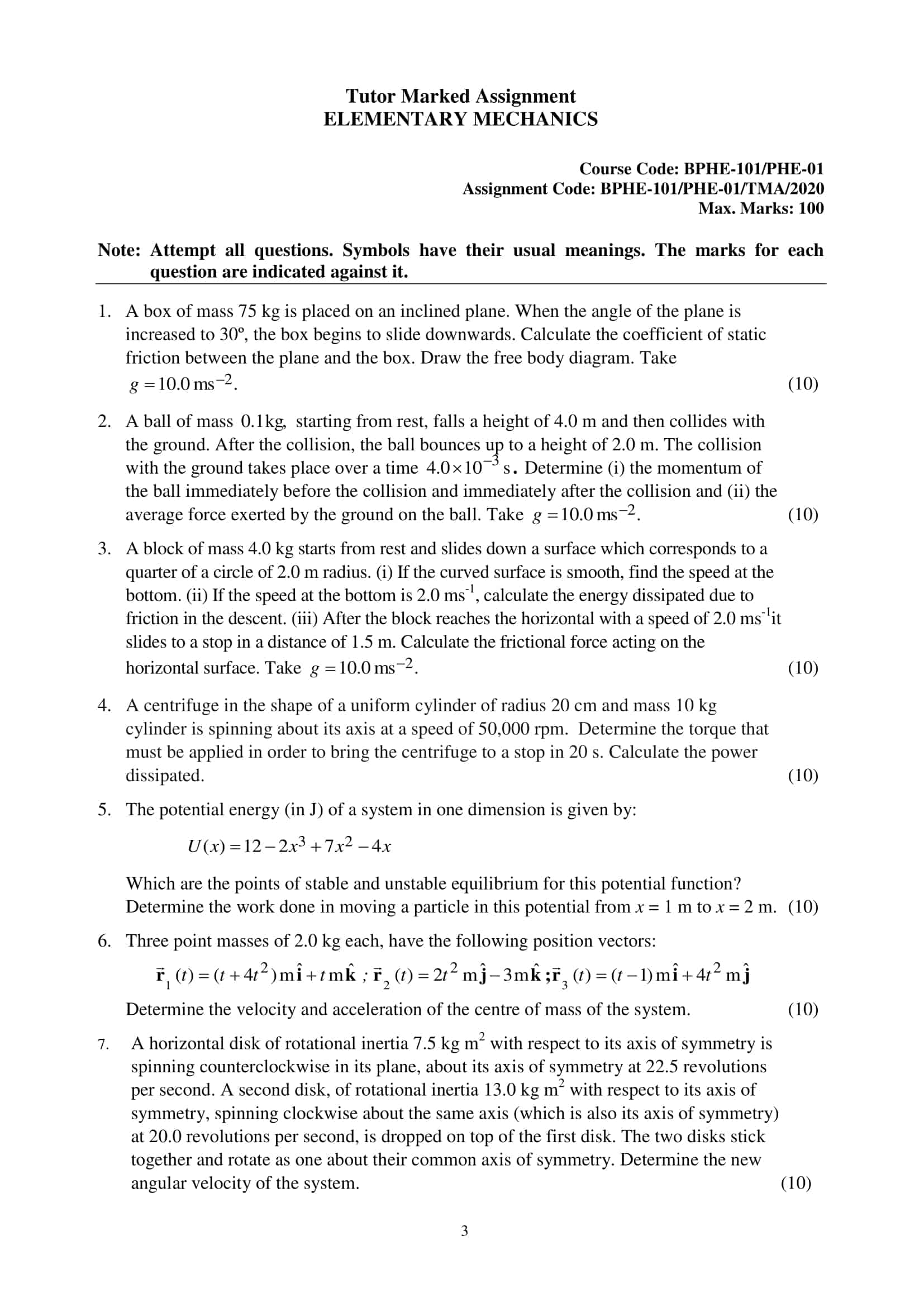- Your cart is empty
- Continue Shopping
LSE-05 Physiology Solved Assignment 2020
ASSIGNMENT
(Tutor Marked Assignment)
Course Code: LSE-05
Assignment Code: LSE-05/TMA/2020
Maximum Marks: 100
| Title Name | LSE-05 LIFE SCIENCES Solved Assignment 2020 |
| University | IGNOU |
| Service Type | Solved Assignment (Soft copy/PDF) |
| Course | BSC (LIFE SCIENCES) LSE |
| Language | ENGLISH |
| Semester | 2019-2020 Course: BSC (LIFE SCIENCES) LSE |
| Session | 2019-20 |
| Short Name | LSE-05 (ENGLISH) |
| Assignment Code | LSE-05/TMA/2020 |
| Product | Assignment of BSC (LIFE SCIENCES) 2020 (IGNOU) |
| Submission Date | Valid from 1st January to 31st December 2020 |
| Price | RS. 60 |
Part I-(Animal Physiology)
1. (a) Define the following terms and give one animal example for each type.
i) ureotelic
ii) uricotelic
(b) Differentiate between the following:
i) open and closed circulation
ii) Systolic and diastolic pressure
iii) action of peptide hormone and steroid hormone
(2×2=4)
(3×2=6)
2. (a) Explain with the help of well labelled figures the control of contraction of vertebrate
skeletal muscle by calcium and regulatory proteins.
(b) Draw a labelled diagram of the teleost gill. How does counter current flow of blood and
water facilitate gas exchange in comparison to concurrent flow?
(5)
(5)
3. (a) Define the term Respiratory Quotient (RQ).
(b) What does it indicate if RQ in humans is :
i) near 0.7
ii) near 0.1
iii) between 0.7-1.0
(c) When does RQ exceed 1? Explain why and how this happens.
(d) Describe the estrous cycle of rat.
(1)
(3)
(1)
(5)
4. (a) Explain synaptic transmission at the neuromuscular junction with the help of a
suitable diagram.
(b) What does an oxygen dissociation curve show? Draw and compare the oxygen
dissociation curves of haemoglobin and myoglobin.
(5)
(5)
5. Describe the structure and function of the following parts of a nephron: renal corpuscle,
proximal tubule, loop of Henle, distal tubule and collecting duct.
(10)
4
Part II-(Plant Physiology)
6. Define the following :
(a) Overall Senescence
(b) Vernalisation
(c) Stomatal index
(d) Permanent Wilting Percentage (PWP)
(e) Circadian rhythms
(2×5=10)
7. (a) List the criteria of essentiality of mineral elements.
(b) Describe how photosystem I and photosystem II work together to produce NADPH
with proper diagram.
(3)
(7)
8. (a) Make a comparative chart of the functions of all the plant hormones.
(b) List the applications of hormones.
(7)
(3)
9. (a) Describe properties of phytochrome and various biological responses controlled by it.
(b) Discuss various strategies acquired by plants to adapt stress.
(5)
(5)
10. Write short note on the following.
i) Emerson Enhancement effect.
ii) CAM plants
iii) Biological clocks
iv) Munch Pressure Flow Model
LSE-05, LSE 05, LSE-5, LSE 5, LSE5, LSE05















Reviews
There are no reviews yet.